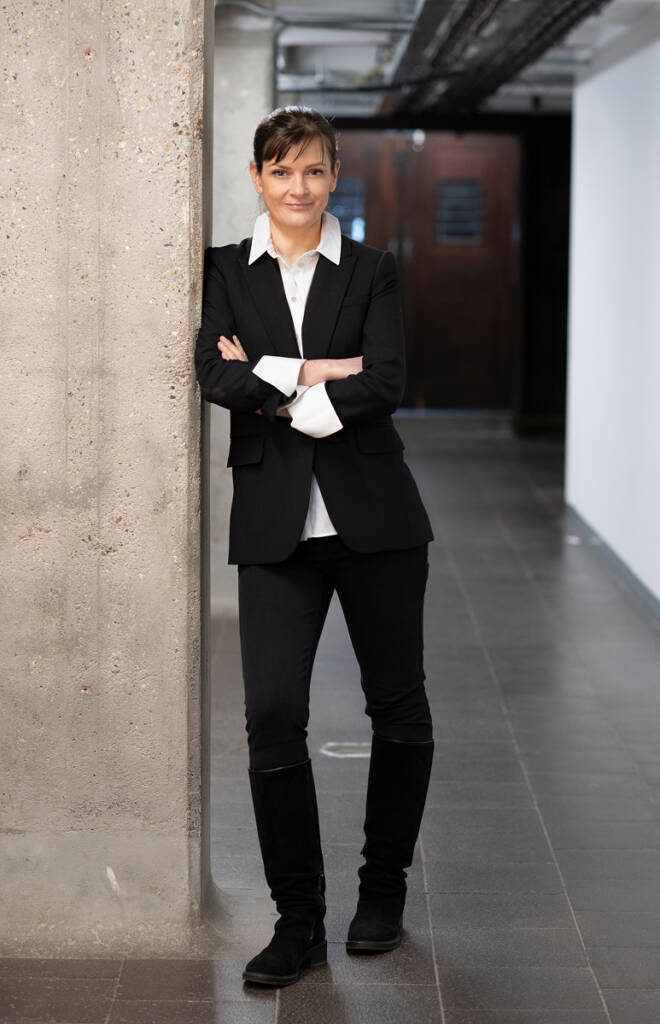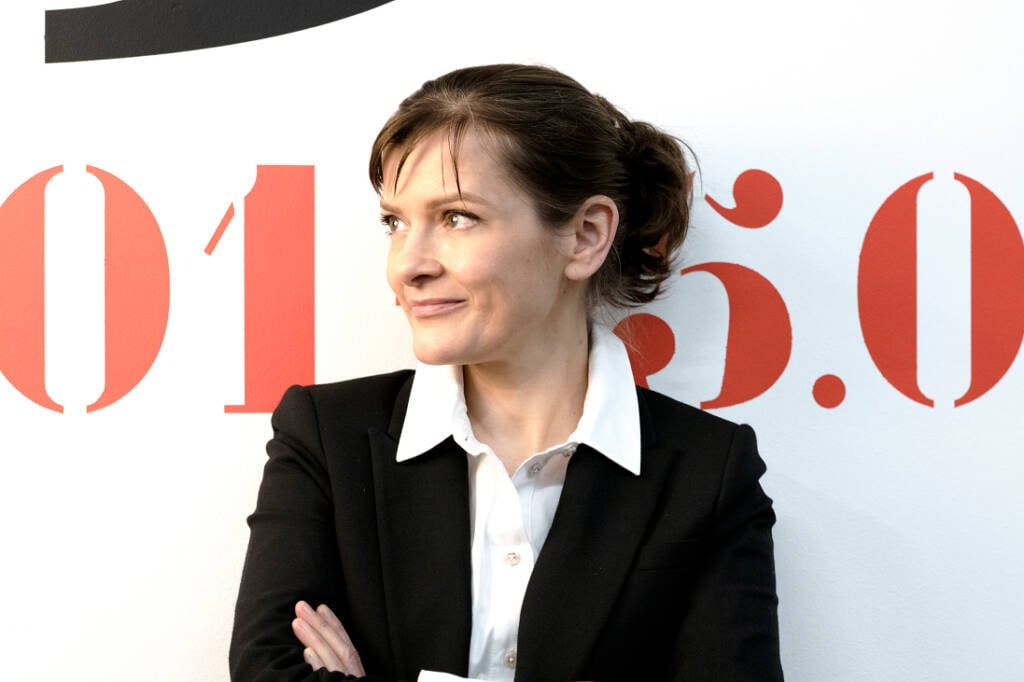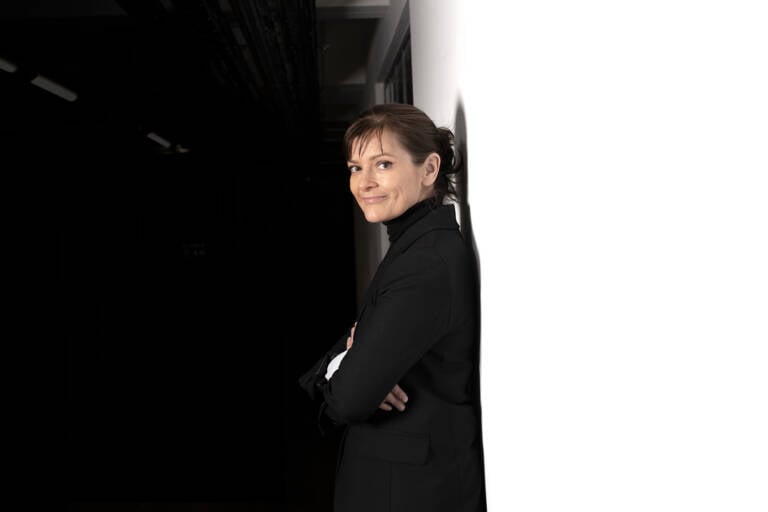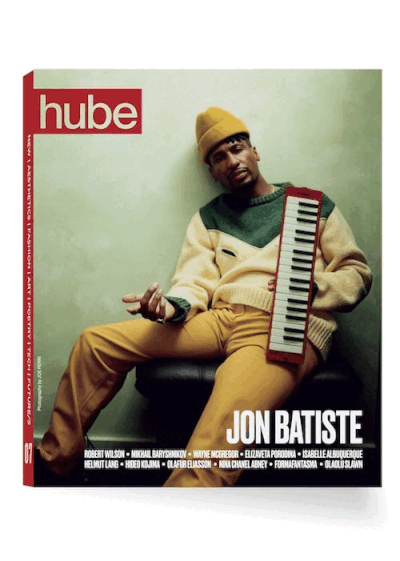

Netia Jones, award-winning international opera director, film-maker, set designer, and director of Lightmap Studios, is as enmeshed within the opera as one can be. Renowned for her integration of cutting-edge technology into her shows and irreplicable out-of-theatre installations, Jones is pioneering forward the future of opera. In May of 2026, she will be leading the world-premier of the Baroque work, Ercole Amante, with the Paris Opera for its first ever staged debut, unmasking the timeless relevance of what could be mistaken for an ancient story. Jones understands every facet of opera and is able to hold its contradictions: able to revel in the pure adoration of the art form at its best, critique and reckon with its faults, and look forward with hope and realism for the future. Netia Jones sits down with hube to discuss her work at the opera and how she hopes to see the medium adapt and change along with the 21st century.
hube: Next year you will be directing as well as designing the set and costumes of a production of the opera Ercole Amante, which, simply, follows the story of Hercules as he rejects his wife in favour of a younger woman. How does living in the immersion of heightened emotions—and at times tragedy—contrast with the mundane moments of everyday life? Do you find yourself blending the sentiments, or are you able to compartmentalise the two?
Netia Jones: Opera is about extremes, and maybe that’s why we are drawn to it—because it is timeless for that reason. It addresses very fundamental aspects of being human, and it does so in a highly extreme way, which allows us to really dive deep into those moments. To be a little more precise: Ercole Amante, which is an extraordinary opera, is going to be a world premiere. It was written at the very beginning of the 18th century by a female composer—which is quite something. But it actually deals with the figure of Hercules in a much more interesting and complex way, and perhaps a less dramatic one. He is of a certain age, his power is waning, and he has expelled his wife in favor of a much younger woman—who happens to be his son’s girlfriend. This is a story that theoretically comes from myth, but could just as easily be set in the present day. And that is the strength of the best works of theatre and opera: they are absolutely timeless, and you can recognize their truths no matter when or where they’re set. It’s actually less heroic than it might outwardly appear—but it’s an absolutely brilliant, amazing opera.
h: For you, living in this world, you mean that you don’t really have to compartmentalise them because they’re both so true and so present?
NJ: The idea of compartmentalising is so interesting because in my job I strangely never compartmentalise. I am almost all the time thinking about an opera, therefore living inside of that opera. Compartmentalising would be a very healthy thing to do. But it is actually impossible to do that because to get into the heart and soul of a piece, you do have to immerse yourself in it. It is not possible to compartmentalise. It’s not that you are feeling extreme emotions at all times, but you are grappling with these situations that whichever opera you are working on is dealing with. And it is profoundly affecting. I even find that it affects my actual health, which is not that helpful, but it is really interesting because it’s a reckoning. It’s important, but for that reason, Ercole Amante actually isn’t very upsetting. I find it hilarious and invigorating because it is so recognisable and this slightly pathetic attempt of this older man to seduce this younger woman, who really does not want any part of this, is really, really interesting. These are the stories that we see every day in the press. It’s extraordinary and invigorating to have a story from the point of view of a woman. Normally in opera, what you’re dealing with is the overwhelming violence towards women, or objectification of women, or simple absence of women. So here, where you have something that is very much the opposite of that, that’s really empowering. There really isn’t any separation between my life and the work that I’m doing. Then in the same way, there isn’t really a separation between the operas themselves and my feelings about the operas.
h: Addressing what you said about women and their treatment—if overwhelmingly it’s in a way of mistreatment and abuse, that’s got to vastly be a different experience for you, the one living in it.
NJ: This is an absolute truth of working in an industry where women are routinely belittled and disempowered. And to think that that doesn’t have an impact actually in the industry is naive. It does, and this has always been the case. It’s not simply a question of putting a feminist lens onto a particular story or interpreting it in a different way. The entire art form is tilted in a certain way, and because we’re dealing with pieces that were written 400, 300, 200, 100 years ago, they carry with them all of those ambivalences or prejudices, and it can become absolutely overwhelming without any doubt. That should be acknowledged.
It’s the first time I’ve ever heard anybody articulate that as you have articulated it. I speak in a slightly different way about it because I speak about the canon itself. I speak quite a lot about the repertoire and the problems of the repertoire, but not even in a very simplistic way because these things across time have changed. They’ve had peaks and troughs, and so you often find very powerful women or very powerful parts for women throughout the 18th century. But then at the turn of the century, when we see an absolute kind of pushback against this new empowerment of women, the 19th-century repertoire is incredibly harmful, and it does impact you when you’re working on it. But what can also impact you, which has nothing really to do with gender, is actually sometimes the bleakness of some stories.
I have recently directed the opera Peter Grimes in Göteborgsoperan, which is on the west coast of Sweden. It was in January and February, so the darkest and coldest months of the year. It was absolutely perfect for the opera. It could not have been more appropriate. Göteborgsoperan is right on the sea. It has a long maritime history. Everything worked perfectly for the opera. But I became almost unwell because it was so intense. It was intense for the performers as well. You have to really confront that story. It doesn’t have any silver lining, it doesn’t have any feeling of redemption in any way. It’s just a very upsetting and very truthful story. I was really impacted by that. I wouldn’t have not done it. I would still do it again knowing that it’s going to make me a bit ill, but it really is impossible to disentangle the experience of immersing yourself in a piece like that and the impact of the piece. You hope that it has that impact on the audience, but you also hope and know that that’s a shorter period for the audience. It’s a single evening’s immersion, but in order to get that experience for the audience, you do have to do that to yourself for the whole period of the preparation of the piece.

